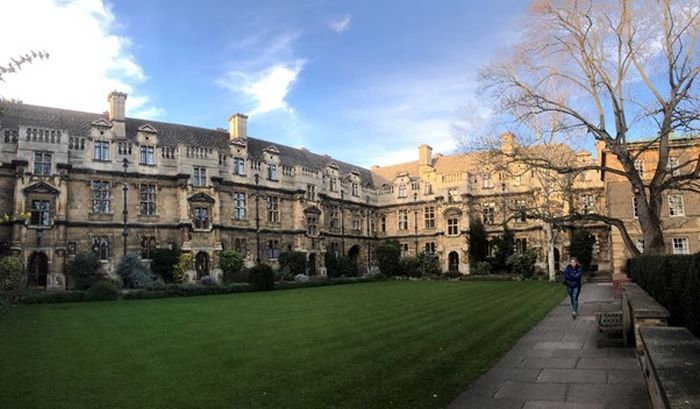What to expect at the Sexual Assault Referral Centre
“I wanted someone to tell me that it would not be as bad as I anticipated, so that is what I am here to tell you.” An anonymous student explains what it’s like to visit a SARC.

Content Note: This article contains detailed discussion of sexual assault. If you are affected by any of the issues raised, please scroll to the bottom of the article to find a list of useful resources.
I had no idea what to expect when I attended the Sexual Assault Referral Centre (SARC) following rape. The mystery of it terrified me. I was told over the phone that I could be there over four hours, and that it would involve both internal and external forensic examinations. This is the last thing a rape survivor wants to hear less than five days after the incident. I wanted someone to tell me that it would not be as bad as I anticipated, so that is what I am here to tell you.
How to get an appointment
The hospital who saw me the morning after the incident helped arrange an appointment at SARC, which was scheduled to take place less than 24 hours after the rape. However, my body – bruised and bleeding – felt physically incapable of undergoing intimate examinations, and I was not psychologically ready to tell my story again. However, five days after the rape, I changed my mind and arranged another appointment at a sister-Clinic for the day after. This meant I fell within what professionals term the ‘forensic window’: DNA can in theory be collected up to seven days after the rape. The staff at both clinics were understanding about my initial cancellation and subsequent rearrangement; it was of no inconvenience. Note that you can visit a SARC at any time, and do not necessarily have to fall within the forensic window. However, if your are wanting to pursue legal action, the closer to the rape that you can get an appointment, the better.
“I felt trusted and believed.”
Arrival
On the morning of my scheduled appointment, a crisis worker called me to check how I was doing and whether I still wanted to come in. She also asked if I wanted to bring a support person into the clinic. The clinic was hard to find, and it was not patently obvious what it was. Once inside, I was taken to the waiting room, offered a cup of tea and a biscuit and told to sit tight until the doctor was ready. The crisis worker then joined, and we spoke about what had happened to me. Not only did I feel believed and trusted, but I felt this woman genuinely cared about me and had a profound sense of empathy. She listened patiently, even when I was unable to coherently articulate my thoughts and feelings. She then calmly explained to me what would follow, making clear that if at any point I was uncomfortable, they could stop the procedure.
Consultation
I was taken through to the forensic examination room where I met the doctor who would be leading the procedure. She was equally warm, and knew exactly what to say to make me feel at ease. She explained to me that this clinic would keep any DNA samples collected for up to a year following the rape, giving me the time and space to make up my mind about potential further action. She then took a full account of what I knew of the rape. It took just over an hour, and the crisis worker brought me another cup of tea when she could see I was struggling. Again, I felt trusted and believed.
Forensic Examination
I am not going to sugarcoat this next bit. I then had to get completely naked and was given a hospital gown with no back. A urine sample was taken for a toxicology report, I was weighed and I was measured. I then was placed on a medical chair, with my legs wedged apart. At this moment, I felt as vulnerable and scared as I had the morning after my rape, but the crisis worker caught onto this very quickly and reassured me I was safe. They then start taking the swabs: internal and external, urethra, vagina and anus. I squirmed, tensed and cried as they prodded and poked. Every time I murmured the staff made sure I still wanted to go ahead with the examination, to which I would always reply that I did. This aspect was uncomfortable, but not painful.
“I felt really proud of my strength.”
However, the next aspect of the examination was painful. This required the insertion of a speculum inside of me in order to access potential DNA samples from my cervix. I have a small frame and was very tense, so this was a long process. The crisis worker tried to get me to relax so they could access my cervix by chatting about University and my friends, but I was still not relaxed enough for them to get the speculum deep enough. I was screaming and crying at this point, feeling nauseous and sick. They both suggested we stopped and that it was probably too much for my body to take right now, but I was determined to get all of the samples they possibly could. I put on Kanye’s Gospel album, the crisis worker held my hand and I tried desperately to relax. After many more uncomfortable minutes, they got the potential sample. The hard bit was over, and I felt really proud of my strength.
Full body examination
The staff knew I was extremely distressed, so offered me a shower and clean pair of underwear before the full body examination. They also gave me some sugary drink as I was feeling very faint. Once I was clean and dry, the doctor examined me top-to-toe, noting any marks on my body both related and unrelated to the incident on a full body diagram. With my consent, she photographed some of the more severe injuries in case I decide to pursue the matter further. Note that even if you don’t have injuries, this does not make the rape or sexual assault any less serious. Often the greatest scars are invisible.
The care pack and follow up
I was given certain important documents before I left, and a ‘care pack’ containing sanitary wear, a toothbrush, lip balm, shower gel, shampoo and a flannel. I was told that, due to stretched resources, the waiting list for psychological support was 6 months. I felt very lucky at this point to have access to the University Counselling Service (UCS) and already be ‘in the system’ for mental health support with my GP.
About 10 days after my appointment, I was called by another crisis worker who was checking in on my well-being. She spoke about ongoing support and coping mechanisms to deal with some of the trauma symptoms I have been experiencing, such as nightmares, sickness and difficulty breathing. She also arranged, with my consent, an anonymous meeting with a police officer specially trained in dealing with rape cases, where I could discuss further options. She assured me that nothing I said to this police officer would be taken any further, and it was simply part of the services they provided me.
Take home advice
If you decide to visit a SARC after rape or sexual assault – which is entirely your choice – prepare to be uncomfortable, vulnerable and scared. But also prepare to be trusted, believed, listened to and cared for. You will leave the SARC four hours after you arrive with a sense of pride, even if you decide never to touch the DNA samples again. I am still in the nascent stages of the healing process, but I will always be grateful that I made the decision to visit the SARC.
If you are affected by any of the issues raised in this article, the following organisations provide support and resources:
- Breaking the Silence: the University’s campaign against harassment and sexual misconduct (includes reporting mechanisms).
- Sexual Assault and Harassment Adviser: specialist University support worker who provides emotional and practical support
- Cambridge for Consent: a student-run campaign to promote consent.
- Cambridge Rape Crisis Centre: a charity for female victims of sexual violence.
- Cambridge Nightline: a confidential night-time listening service.
- Students’ Unions’ Advice Service: the Students’ Unions’ confidential, independent and impartial advice service.
 News / Hundreds of Cambridge academics demand vote on fate of vet course20 February 2026
News / Hundreds of Cambridge academics demand vote on fate of vet course20 February 2026 News / Judge Business School advisor resigns over Epstein and Andrew links18 February 2026
News / Judge Business School advisor resigns over Epstein and Andrew links18 February 2026 News / University Council rescinds University Centre membership20 February 2026
News / University Council rescinds University Centre membership20 February 2026 News / Petition demands University reverse decision on vegan menu20 February 2026
News / Petition demands University reverse decision on vegan menu20 February 2026 News / Caius students fail to pass Pride flag proposal20 February 2026
News / Caius students fail to pass Pride flag proposal20 February 2026










